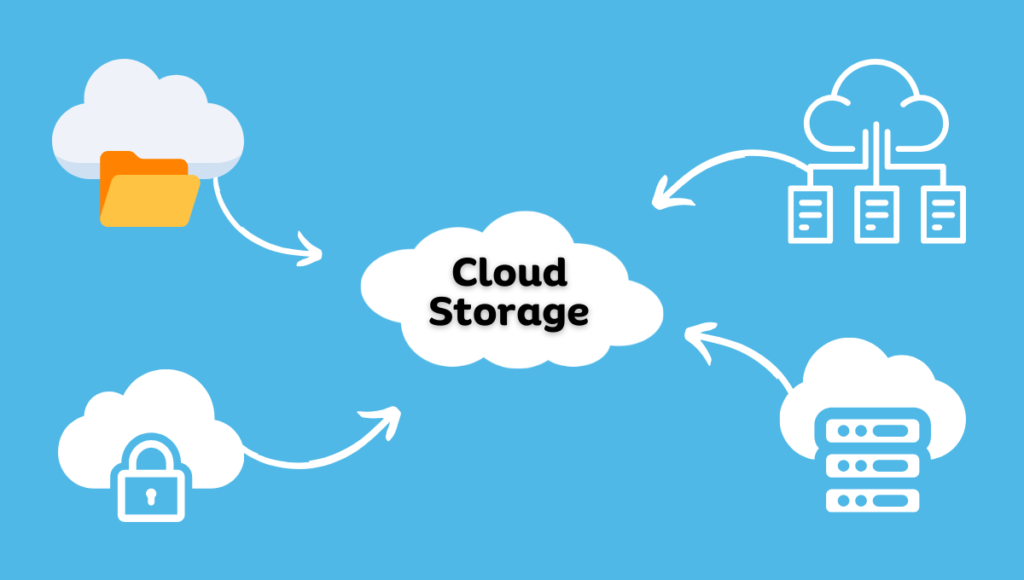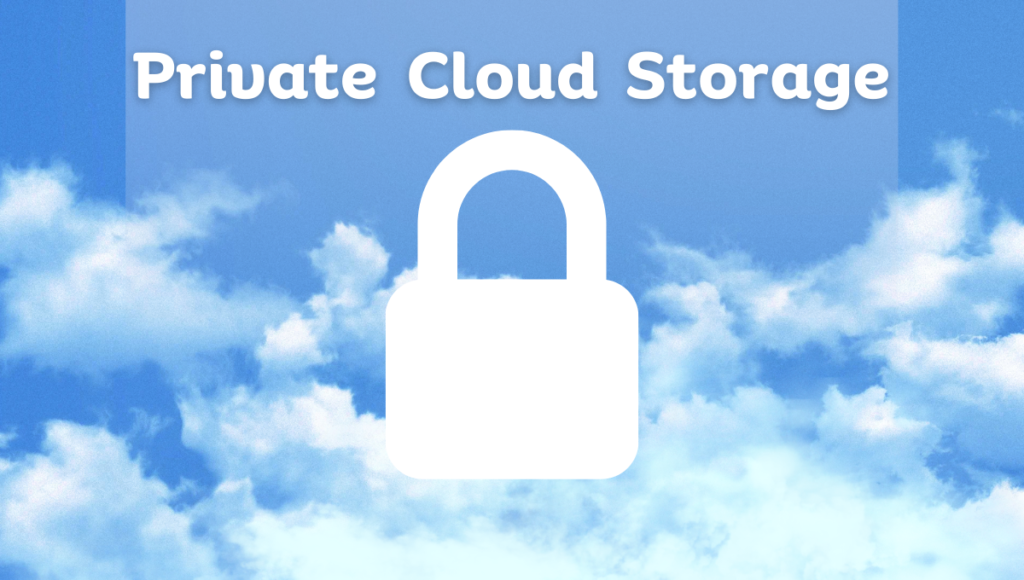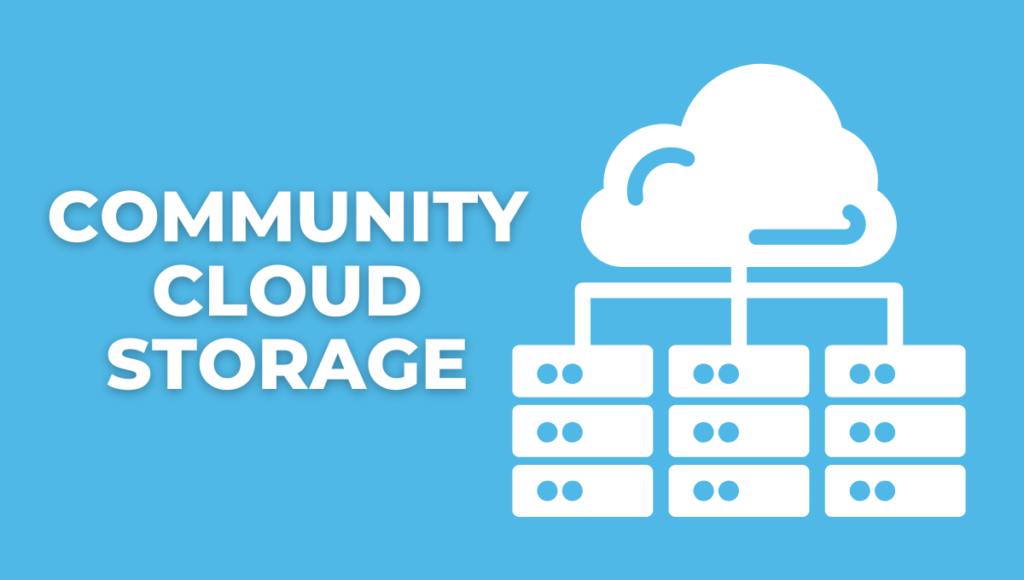
The Four Types of Cloud Storage: Definition, Benefits and In-Depth Guide
Introduction
Storage is an important tool for both businesses and people in today’s digital world. The four kinds of cloud storage all keep your files on computers you can connect to over the internet. They let you handle information in a safe, scalable, and adaptable way. There are four different kinds of cloud storage: public, private, mixed, and multi-cloud. There will be a full explanation of each type and its pros and cons. If you know these choices, you can decide better what to keep and how to get your important information back.
What is Cloud Storage?
Cloud storage is a way to store digital files on computers in different places. A third-party service takes care of and protects the data stored on computers. The service provider ensures that all of the data on its computers can always be reached through public and private internet connections.
Data can be stored, viewed, and kept safe in the cloud without companies having to own and run their data centers. This helps them save money on the original and ongoing data center costs. Businesses can change how much data they store in the cloud whenever needed.
Why Use Cloud Storage?
Many people choose cloud storage for many reasons. Of course, it makes things safer because you’re less likely to lose knowledge. So, when you save files to the cloud, they are secured to keep hackers and other bad people from getting to them. Mission-critical data can also be saved twice, so a backup copy is always on hand in case of an accident. This way, your business can keep running.
Cloud storage also saves money. Since you only pay for the equipment you use, cloud storage costs may be seen as an ongoing operational cost that changes based on your needs rather than an initial investment in hardware.

A Look at the Four Types of Cloud Storage
Let’s take a quick look at the four main types of cloud storage before we get into each one:
- Public Cloud Storage
- Private Cloud Storage
- Hybrid Cloud Storage
- Community Cloud Storage.
Each has unique benefits, and understanding how they differ is essential for making an informed decision
1. Public Cloud Storage
Most likely, the most well-known and used cloud storage is public cloud storage. A third-party provider who owns and controls the infrastructure and storage tools runs a public cloud. Though information is separate and safe, users share the same storage system.
Key Benefits of Public Cloud Storage
Cost-effective: Public cloud storage is frequently less expensive than on-premise storage options.
Pricing: If you want to use public cloud storage, you pay for the space you use. This is called “pay as you-go” pricing.
Scalability: It’s easy to bring public cloud storage up or down to meet changing storage needs.
Pros of Public Cloud Storage:
Cost-effective: Public cloud storage is frequently less expensive than on-premise storage options.
Accessibility: You can access anything if you have an internet link and public cloud storage.
Reliability: Public cloud providers provide data accuracy using strong redundancy and disaster recovery practices.
Ease of Use: Public cloud storage’s low maintenance needs and user-friendly interface make it usually easy.
Cons of Public Cloud Storage
Security Issues: Public cloud storage is used by various companies, so data leakage or unlawful access runs a risk. Public cloud providers sometimes employ robust security measures, but companies could need more steps to guard their data.
Vendor Lock-in: Selecting a public cloud provider could cause vendor lock-in, complicating vendor switching when needed. This can restrict choices and raise prices over time.
Limited Control: Businesses in a public cloud environment must have more control over their infrastructure and data than in a private cloud or on-site solution. Businesses with high degrees of customizing or strict compliance policies could find this problematic.
Use Cases
Data Backup and Recovery: Public cloud storage can save backups of important data. Hence, it is a rather cheaply priced disaster recovery solution.
File Sharing and Collaboration: Trade data and work with clients and coworkers using public cloud storage.
Big Data Analytics: Public cloud storage lets one save and examine vast volumes.
Application Development and Testing: Setting up and testing an app: Public cloud storage lets you store and manage data while setting up and testing an app.

2. Private Cloud Storage
A private cloud is a type of cloud computing whereby data is housed and accessed just for one company or entity. Private clouds give more protection, control, and flexibility than public cloud storage, which many businesses use.
Key Features of Private Cloud Storage:
Dedicated Infrastructure: Private cloud environments let only certain people access them, and they are usually stored on servers or clusters they only use.
Customization: Organizations can customize their private cloud environment to fit their requirements, including security policies, performance, and data storage capacity.
On-Premises or Off-Premises: Private clouds can be housed on-site in an entity’s colocation facility or data center.
Pros of Private Cloud Storage:
Better security: They are safer because private computers aren’t shared with other businesses.
Better Control: Businesses have full command over their private cloud environment, which includes managing data access, following the rules, and accessing data.
Customization: Private clouds can be built to fit unique requirements and needs.
Scalability: Private clouds can be made bigger or smaller depending on how much work they have.
Regulatory: It’s easier to set up private clouds to meet the regulatory needs of a specific business.
Cons of Private Cloud Storage:
Costs May Be Higher: Private clouds may be more expensive than public clouds because they need their own equipment and incur more costs for running them. This could be very important for small businesses or those with limited resources.
Complexity: Management of a private cloud system may require more work than a public cloud service because it requires specific skills and knowledge. If handled properly, this could raise running costs, lead to delays, or stop work.
Limited Scalability: Private clouds can be scaled up and down more quickly than public clouds. This might be difficult for businesses that increase or change their tasks.
Use Cases for Private Cloud
Sensitive Data Storage: Companies who handle sensitive data—such as medical information, financial data, or intellectual property—often employ private clouds to guarantee data security and compliance.
Enterprise Applications: Big companies could decide to host important applications that must be incredibly dependable, safe, and performable on private clouds.
Hybrid Cloud Environments: Companies that use public and private cloud services can leverage private clouds for applications needing security or sensitive data and public clouds for more affordable and scalable workloads.
3. Hybrid Cloud Storage
Combining public and private cloud storage, hybrid clouds give businesses the best of both worlds. It lets companies maximize security, performance, and cost control depending on their particular requirements using a tailored approach to data management.
Pros of Hybrid Cloud Storage
Cost Optimization: As a result, businesses can save money with hybrid clouds because they store less critical data on the public cloud, which is usually cheaper.
Performance Optimization: During busy times, hybrid clouds can boost performance by using the processing power and ability to grow public clouds.
Security and Compliance: Hybrid clouds protect important private and less sensitive data in the public cloud, helping companies follow security and compliance rules.
Flexibility: Greater flexibility made possible by hybrid clouds lets companies customize their data management approach to fit their particular requirements more than public or private clouds.
Cons of Hybrid Cloud Storage
Complexity: Managing a hybrid cloud system can be difficult because public and private resources must be in sync. This is more difficult than handling a single cloud environment. If this needs to be handled correctly, it could raise running costs and lead to delays or stopping work.
Vendor Lock-in: Using many cloud providers increases the risk of vendor lock-in, making switching to another provider more challenging. This can reduce choices and raise costs over time.
Problems with security: Keeping data safe and in line in a hybrid cloud might be more challenging than in a single cloud because you have to control who can access the data carefully. There are security rules for both the public and private clouds.

4. Community Cloud Storage
Community cloud storage is a cloud computing service that many businesses in the same community or field use. It strikes a good mix between the adaptability of public cloud storage and the safety and ease of use of private cloud storage.
Pros of Community Cloud Storage:
Shared Costs: One of the best things about community cloud storage is that it can lower the total cost of cloud storage for businesses by letting them share resources. Smaller companies that might need more money to build their private cloud infrastructure will benefit the most from this.
Better security: group clouds can offer better protection than public clouds because they are only used by businesses in a particular industry or group. This lowers the chance of data leaks and people getting in without permission.
Customization: Community clouds can be changed to fit the needs of the community’s organizations. This makes for a system that is both flexible and easy to manage.
Cons of Cloud Storage:
Limitations on Scalability: Community clouds might not be as scalable as public clouds. Businesses that grow quickly or have changing tasks might find this difficult to manage.
Dependence on People in the Community: For group cloud storage to work, everyone must take part and work together. If one or more users don’t keep their promises, the cloud service may not work as well or be as reliable.
Problems with government: Community cloud management requires good governance to ensure that everyone’s wants and interests are met.
Use Cases :
In this case, healthcare organizations can use community clouds to share medical data and patient records.
Government: Government departments can use community clouds to send sensitive data and work together on projects.
Schools: Community clouds let colleges and universities share teaching materials and work together on research.
Factors to Consider When Choosing a Cloud Storage Type
Business needs: Think on the scale of your company and data sensitivity.
Though they cost more than public clouds, which are often less expensive, private clouds offer improved security.
Sensitive sectors like healthcare could need hybrid or private solutions to guarantee security.
Popular Cloud Storage Providers
There are various cloud storage services accessible, each with unique features:
• Amazon Web Services (AWS) is a popular option for public and hybrid cloud storage solutions.
• Google Drive is a user-friendly platform for individuals and small companies.
• Dropbox is known for its user-friendly interface and seamless file sharing.
Conclusion
People and companies have far more independence, security, and growing capability thanks to cloud storage. Knowing the advantages and drawbacks of public, private, hybrid, and community clouds will enable you to decide which best fits your requirements.
FAQ's
In what way do public and private cloud storage differ?
While private cloud storage is utilized just by one organization, many companies use public cloud storage. Though private clouds offer more security and management, public clouds are typically less expensive than private clouds.
How safe is online storage?
Cloud storage companies apply strong security measures. The cloud type—public, private, or hybrid—and the provider’s activities determine the degree of security. Selecting a company with high-security practices and certifications is rather crucial.
Can I move between several kinds of cloud storage?
You can move between several kinds of cloud storage indeed. Moving data across several cloud models or providers can be challenging and time-consuming.
Should my cloud provider close for business, what happens?
Your data will not be accessible if your cloud service closes for business. Consequently, it is imperative to establish a data backup plan and consider redundancy while depending on different providers or cloud models.
How do prices for cloud storage work?
Often pay-as-you-go, cloud storage pricing lets you pay just for the storage you use. The type of cloud storage, the required storage volume, and the provider’s pricing choices all affect the price.

